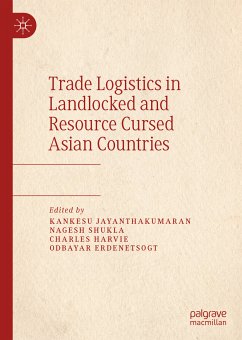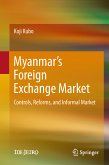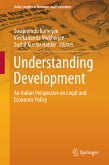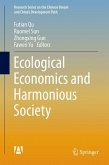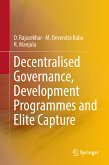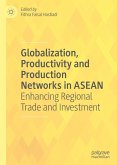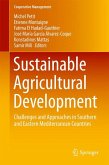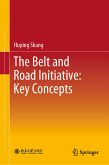This book focuses on strategies to achieve economic diversification in Asian landlocked countries. It does so by analysing the impact of the Dutch disease, non-resource firm heterogeneity, trade logistics operations, trade facilitation, aid for trade, small and medium-sized enterprises, and foreign direct investment. Offering a wide range of expert views and opinions, research findings, information and data, the book will be of value to policy makers and students of trade and development economics.
Kankesu Jayanthakumaran is a Senior Lecturer at the University of Wollongong, Australia. His research has focused on 'trade facilitation and performance', an area in which he has published 34 peer-reviewed journal articles and 5 book chapters, edited 2 books, and authored 1: Industrialization and Challenges in Asia, published in 2016. His current research area is on integrative trade and logistics in land-locked countries.
Nagesh Shukla is a Senior Lecturer in the School of Systems, Management and Leadership at University of technology Sydney. He received his PhD from the University of Warwick (UK) and Bachelor's degree (Manufacturing Engineering) from the National Institute of Foundry and Forge Technology from India. His research focuses on business data analytics and optimisation.
Charles Harvie is an Associate Professor in the Faculty of Business, University of Wollongong, Australia, and holds a Ph.D in Economics from the University of Warwick, UK. His research focuses on the economies of East and South-east Asia, and is published in the form of books and scholarly academic journals.
Odbayar Erdenetsogt is an Executive Director of the International Think Tank for Landlocked Developing Countries. Previously, he served in the Mongolian Ministry of Foreign Affairs. Mr. Odbayar earned his bachelor degree and MA in international relations from the University of Dresden, Germany, majoring in Political Science, Philosophy, and Economics and Social History.
Dieser Download kann aus rechtlichen Gründen nur mit Rechnungsadresse in A, B, BG, CY, CZ, D, DK, EW, E, FIN, F, GR, HR, H, IRL, I, LT, L, LR, M, NL, PL, P, R, S, SLO, SK ausgeliefert werden.
Es gelten unsere Allgemeinen Geschäftsbedingungen: www.buecher.de/agb
Impressum
www.buecher.de ist ein Internetauftritt der buecher.de internetstores GmbH
Geschäftsführung: Monica Sawhney | Roland Kölbl | Günter Hilger
Sitz der Gesellschaft: Batheyer Straße 115 - 117, 58099 Hagen
Postanschrift: Bürgermeister-Wegele-Str. 12, 86167 Augsburg
Amtsgericht Hagen HRB 13257
Steuernummer: 321/5800/1497
USt-IdNr: DE450055826
Bitte wählen Sie Ihr Anliegen aus.
Rechnungen
Retourenschein anfordern
Bestellstatus
Storno

